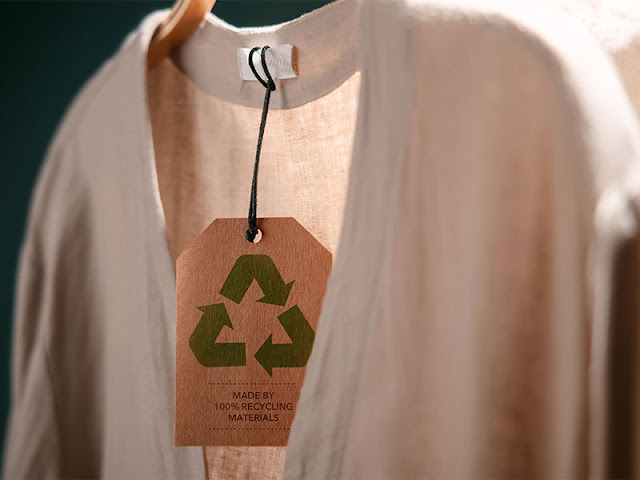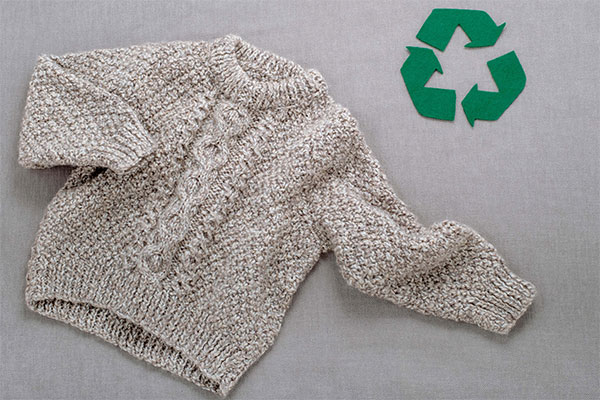In recent years, sustainable fashion has emerged as a powerful force in the global apparel industry. This movement seeks to revolutionize th...
In recent years, sustainable fashion has emerged as a powerful force in the global apparel industry. This movement seeks to revolutionize the way we produce, consume, and perceive clothing, challenging the harmful practices of fast fashion. Sustainable fashion prioritizes environmental responsibility, ethical practices, and social consciousness, aiming to create a positive impact on the planet and its inhabitants. In this article, we delve into the critical reasons why sustainable fashion matters and how it holds the potential to shape a greener and more ethical future.
1. Environmental Impact: The Call for Conscious Choices
The traditional fashion industry has long been associated with environmental degradation. From massive water consumption and chemical pollution during manufacturing to the extensive carbon footprint of transportation and distribution, the negative consequences of fast fashion are undeniable. Sustainable fashion, however, presents a stark contrast by promoting eco-friendly materials, renewable energy sources, and sustainable production practices. By choosing sustainable fashion, consumers can actively participate in the preservation of ecosystems, water resources, and the overall biodiversity of our planet.
2. Circular Economy: The Pathway to Waste Reduction
In a world where over 92 million tons of textile waste are generated annually, embracing the principles of the circular economy is crucial. Sustainable fashion adopts a circular approach, aiming to create a closed-loop system where garments are designed, produced, and disposed of in an environmentally responsible manner. This concept encourages recycling, upcycling, and designing durable products that can be easily repaired or repurposed. By reducing waste generation and extending the lifespan of garments, sustainable fashion paves the way for a more sustainable and resource-efficient industry.
3. Ethical and Social Responsibility: Putting People First
Beyond the environmental aspect, sustainable fashion addresses the human cost of fast fashion. Many global brands have faced scrutiny for exploiting labor in developing countries, where workers endure low wages, hazardous working conditions, and limited rights. In stark contrast, sustainable fashion brands prioritize fair wages, safe working conditions, and respect for workers' rights. By choosing sustainable fashion, consumers can support ethical practices and contribute to the improvement of labor conditions across the fashion supply chain.
Visit: budget friendly fashion tips
4. Eco-Friendly Materials: The Power of Natural Fibers
A key pillar of sustainable fashion lies in the use of eco-friendly materials. Traditional fabrics like cotton and polyester have significant environmental impacts due to their resource-intensive production processes. Sustainable fashion seeks alternatives, such as organic cotton, hemp, bamboo, and Tencel, which are grown without harmful chemicals and have lower water requirements. Furthermore, innovation has given rise to materials made from recycled fibers, such as plastic bottles and discarded clothing, reducing the demand for new resources and diverting waste from landfills.
5. Fashion Innovation: Redefining Possibilities
The pursuit of sustainability in fashion has ignited a wave of creativity and innovation. Designers are exploring groundbreaking techniques and materials that challenge traditional norms. Sustainable fashion encourages research and investment in technology to improve processes like waterless dyeing, 3D printing, and biodegradable textiles. By fostering these innovations, the industry can continue to evolve toward a more sustainable and responsible future.
Visit: skincare tips for travel
6. Changing Consumer Behavior: The Rise of Conscious Consumers
Consumers are increasingly seeking transparency and accountability from the brands they support. The rise of sustainable fashion has coincided with a change in consumer behavior, where people are becoming more conscious of the impact their choices have on the planet and society. As consumers demand ethical and sustainable products, businesses are compelled to adapt their practices to meet these expectations. This shift in consumer behavior is instrumental in driving the transformation toward a greener fashion industry.
7. The Power of Collective Action: Industry and Policy Changes
The fashion industry's impact on the environment and society is vast, making it crucial for both businesses and policymakers to take action. Sustainable fashion advocates are pushing for changes in regulations and standards that prioritize sustainability and social responsibility. Governments and industry stakeholders are increasingly recognizing the importance of implementing sustainable practices and supporting sustainable fashion initiatives.
Visit: summer fashion tips for women
Conclusion
Sustainable fashion is not merely a fleeting trend; it is a transformative movement that holds immense power to reshape the fashion industry for the better. By choosing sustainable fashion, consumers can actively contribute to environmental conservation, support ethical practices, and drive industry innovation. As businesses and policymakers align with sustainable principles, we can collectively create a greener, more ethical, and responsible future for the fashion industry and beyond. The time for sustainable fashion is now, and our choices today will undoubtedly shape the world we leave for future generations.


















No comments